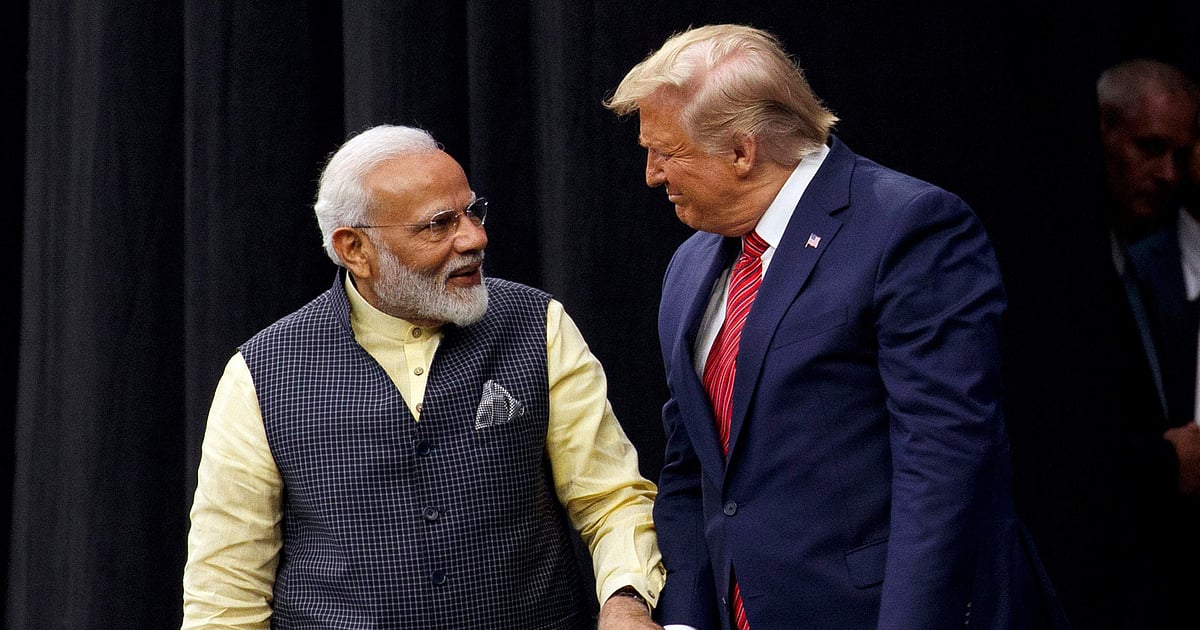 |
|
Prime Minister Narendra Modi's upcoming visit to Washington D.C. promises to be a significant event in the ongoing relationship between India and the United States. His statement expressing anticipation for a meeting with President Trump, referring to him as a 'friend,' sets a positive tone for the discussions. The emphasis on strengthening and expanding the partnership across multiple sectors – technology, trade, defense, energy, and supply chain resilience – highlights the breadth and depth of the bilateral agenda. The visit, occurring within a month of President Trump's inauguration, underscores the importance both nations place on establishing a strong foundation for their cooperation early in the new presidential term. The prior phone conversations between the two leaders suggest a pre-existing rapport, potentially easing the path for productive negotiations.
The selection of sectors for focused collaboration reflects the shared interests and mutual benefits both countries stand to gain. Technological advancements are critical for both nations' economic growth and national security. Deepening trade relations, already significant in volume, promises to unlock further economic opportunities and create jobs on both sides. Defense cooperation, encompassing joint military exercises, technology sharing, and equipment procurement, is vital for maintaining regional stability and countering common threats. Energy security, especially in the context of diversifying energy sources and ensuring reliable supplies, is a crucial component of both national strategies. Finally, building resilience in global supply chains is a shared imperative in the face of geopolitical uncertainties and the need for greater economic self-sufficiency.
The success of the visit will depend on several factors. The existing political climate in both countries will undoubtedly play a role, influencing the scope and ambition of any agreements reached. Domestic priorities and political considerations within each nation could impact the negotiation process. The specific outcomes of the meeting will likely be shaped by the level of detail in advance preparations, the flexibility of both sides in compromising, and the ability to find common ground on potentially contentious issues. The post-visit implementation of any agreements will be critical for gauging the long-term impact of the meeting. A successful visit could lead to concrete steps to strengthen the strategic partnership, improve economic ties, and promote greater cooperation on global issues.
Beyond the immediate outcomes, the visit holds broader implications for the Indo-Pacific region. The deepening relationship between India and the United States serves as a counterbalance to China's growing influence in the region. Cooperation on defense, technology, and economic development helps bolster stability and promotes a rules-based international order. The strengthened partnership could also lead to increased collaborations on addressing shared challenges such as climate change, terrorism, and global health crises. The visit will be closely watched by regional and global powers, signaling the evolving geopolitical landscape and the strategic importance of the US-India relationship.
In conclusion, Prime Minister Modi's visit to Washington represents a pivotal moment in the history of US-India relations. The focus on strengthening ties across multiple sectors reflects a shared commitment to a stronger bilateral partnership. The success of this visit will not only impact the two nations but will also have significant implications for the wider geopolitical landscape, contributing to stability and cooperation in the Indo-Pacific and beyond. The long-term effects of this meeting will be felt for years to come, shaping the trajectory of the relationship between two of the world’s largest democracies.
